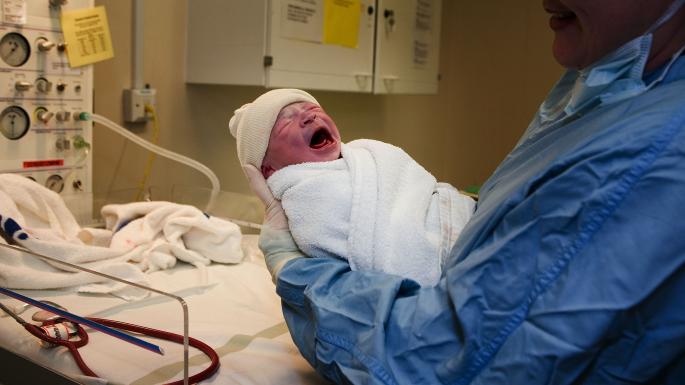Feeding bacteria to babies ‘cuts risk of sepsis by 40%’
- March 20, 2017
- Brenda Fisher
- 0 Comments

Feeding newborn babies probiotic bacteria reduces their chances of getting sepsis by 40 per cent, a study has found.
The treatment could be a simple, inexpensive way to prevent infant deaths from or blood poisoning in response to an infection.
About 600,000 babies worldwide, and up to 1,500 in the UK, die of sepsis each year. Most at risk in this country are premature babies and those with other significant health conditions.
Scientists administered more than 4,000 Indian newborns with a strain of Lactobacillus plantarum bacterium, for seven days, and then monitored them for two months. Not only was their risk of sepsis dramatically reduced but the babies were also less likely to develop respiratory infections.
The results were so promising that the trial was stopped early, as it was considered no longer ethical to withhold the probiotic from babies in the control group. “Next I would like to test [the probiotic] in preterm and low birth weight babies,” said Pinaki Panigrahi, a professor at University of Nebraska Medical Centre College of Public Health and lead author on the study, published in Nature. “They are at much higher risk than full-term babies in the developed world.”
Sepsis can result when harmful gut bacteria grow out of control and break through the intestinal wall and into the bloodstream. The body’s response can damage organs and tissues.
“This is a preventative therapy,” said Dr Panigrahi. “If we can get good bugs into the gut early enough, they will stop the bad ones from overpopulating and going through into the bloodstream.”
The probiotic also boosts the baby’s immune system, which could explain how it prevented infection in the lungs, so far from the gut.
Lactobacillus plantarum is widely available in probiotic supplements. However, Ron Daniels, chief executive of the UK Sepsis Trust, stressed that doctors shouldn’t start feeding it to newborns yet. “It’s a relatively small study in a country not necessarily similar in its bacterial characteristics,” he said. “We need more work done on this before we can recommend any change in practice.”
